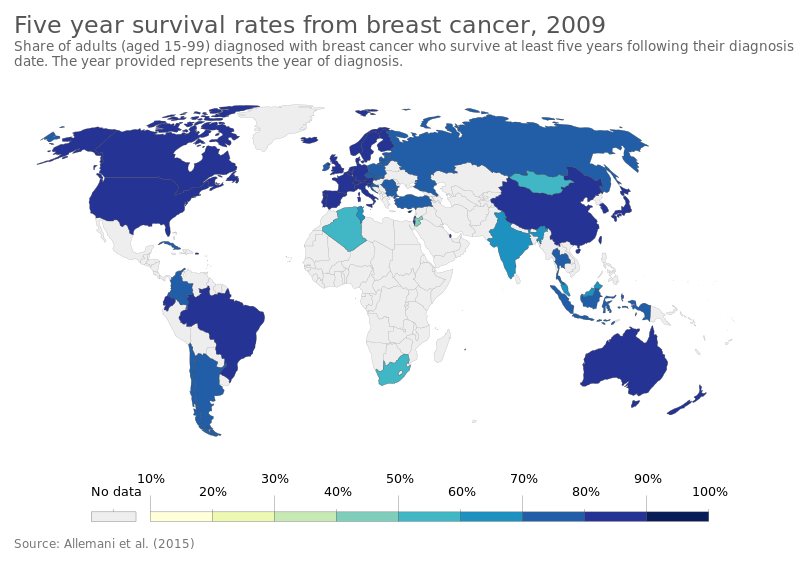Persistent Sexual Health Issues After Cervical Cancer Treatment Highlight Need for Comprehensive Survivorship Care

CHICAGO — A recent analysis of patient-reported outcomes from the OUTBACK trial has revealed significant long-term sexual health issues faced by women who have undergone treatment for cervical cancer. This study, presented at the American Society of Clinical Oncology (ASCO) 2025 Annual Meeting, emphasizes the necessity for dedicated survivorship care to address these persistent concerns.
The OUTBACK trial, which involved 919 women, examined the effects of adjuvant chemotherapy (ACT) following chemoradiotherapy (CRT) in the treatment of locally advanced cervical cancer. The study's findings indicate that numerous sexual health symptoms and concerns remain prevalent even three years post-treatment, according to Dr. Linda Mileshkin, MD, Director of Medical Oncology at the Peter MacCallum Cancer Centre in Melbourne, Australia, and lead author of the study.
The analysis of patient-reported outcomes (PROs) revealed that common moderate-to-severe symptoms included worries about future health, hot flashes, frequent urination, and difficulties with sexual activity. Specifically, at the one-year follow-up, 64% of participants reported that sexual activity was not enjoyable, and 44% expressed concerns regarding their future health. These issues showed only slight improvement over the two to three-year period, with 34% of women still reporting that sexual activity remained unenjoyable at the three-year mark.
The significance of these findings cannot be overstated. Dr. Mileshkin noted that the issues represented in the PROs may be underestimated due to low questionnaire completion rates. Nonetheless, the data clearly indicate that many women continue to experience significant sexual health challenges long after their initial treatment.
The OUTBACK trial's findings align with broader research on the impact of cervical cancer treatments on sexual health. According to a peer-reviewed study published in the Journal of Sexual Medicine in 2021, women treated for cervical cancer often report diminished sexual function and quality of life, underscoring the need for improved communication and management strategies among healthcare providers.
In addition to sexual health concerns, the study highlighted the prevalence of other symptoms such as fatigue, sleep disturbances, and changes in bowel habits. For instance, 32% of participants reported persistent fatigue at three years post-treatment, indicating that the side effects of cervical cancer treatment may extend well beyond sexual health alone.
Expert opinions suggest that addressing these long-term effects requires a multifaceted approach. Dr. Sarah Johnson, a Professor of Psychology at the University of California, Los Angeles, emphasized the importance of integrating psychological support with medical treatment. She stated, "Healthcare providers must prioritize discussions around sexual health during follow-up appointments, as many patients may not feel comfortable initiating these conversations."
Furthermore, Dr. Martin Reyes, an oncologist at Johns Hopkins University, pointed out that survivorship care plans should be tailored to address individual patient needs, including sexual health. "The healthcare system must adapt to ensure that long-term care encompasses not just survival but quality of life post-treatment," he asserted.
Despite these recommendations, a gap remains in the implementation of comprehensive survivorship care. A report from the American Cancer Society in 2023 noted that many healthcare providers lack training in addressing sexual health issues in cancer survivors, leading to a significant oversight in patient care.
The implications of the OUTBACK trial’s findings extend beyond individual patients. With thousands of women undergoing cervical cancer treatment each year, the healthcare system must evolve to better support survivors. Dr. Mileshkin’s call for heightened awareness and action among clinicians is crucial in ensuring that women receive holistic care that addresses both the physical and emotional toll of cancer treatment.
In conclusion, the persistent sexual health issues following cervical cancer treatment underscore an urgent need for enhanced survivorship care models. As healthcare providers strive to improve the quality of life for cancer survivors, a concerted effort must be made to integrate sexual health discussions into routine follow-up care, ultimately leading to better health outcomes for women navigating life after cervical cancer.
The findings from the OUTBACK trial serve as an important reminder of the long-term effects of cancer treatment and the necessity for healthcare systems to adapt accordingly, ensuring that future generations of women receive the comprehensive care they deserve.
Advertisement
Tags
Advertisement





